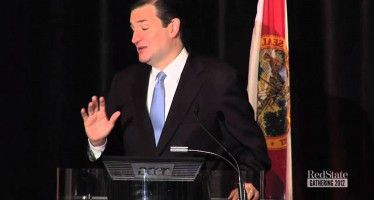Obama administration goes after critic
I knew Dinesh D’Souza back in the 1980s when we both lived in Washington, D.C. Although I haven’t seen him since then, we both have moved to California, in his case to San Diego.
An immigrant from India, he’s an energetic conservative who has written numerous books and countless articles. He was a policy adviser to President Reagan.
At the time a friend of ours joked that there actually were several clones of Dinesh, the ones we don’t see in a room somewhere in front of a battery of word processors.
In 2012, Dinesh released “2016 Obama’s America,” the second most successful political documentary effort ever. It strongly criticized the president.
Payback time.
The Obama administration just indicted him for alleged felony “election fraud.” According to federal election law, each person can donate only $5,000 to U.S. Senate candidates. But Dinesh allegedly funneled $20,000 through friends to the campaign of Wendy Long, a friend from their days at Darmouth College.
Assuming that’s what happen, a lot of good it did him. According to Ballotpedia, Long got just 25 percent of the vote; compared to 68 percent for the incumbent winner, left-wing Democratic Sen. Kirsten Gillebrand.
Moreover, according to the Washington Post:
“in 2011, a prominent Los Angeles attorney, Pierce O’Donnell, pleaded guilty to misdemeanor charges of making $20,000 in donations to the presidential campaign of former Sen. John Edwards and reimbursing straw donors.”
The amount was the same: $20,000. And the same Obama administration prosecuted the case, but for a Democrat it was a misdemeanor.
A couple of things are important here. The First Amendment is clear:
“Congress shall make no law respecting an establishment of religion, or prohibiting the free exercise thereof; or abridging the freedom of speech, or of the press; or the right of the people peaceably to assemble, and to petition the government for a redress of grievances.”
That means the 1974 post-Watergate campaign “reforms” and the 2002 McCain-Feingold campaign finance “reforms” are completely unconstitutional. All they did was make the political process so complex that only professional campaigners can figure it out. Even a political writer like Dinesh ca become ensnared ensnared.
Of course, since 1974 the U.S. Supreme Court mostly has rubber-stamped these unconstitutional “reforms,” despite the occasional demurer, such as the 2010 Citizens United case allowing large corporate contributions for independent expenditures.
Manhattan U.S. Attorney Preet Bharara said in a statement:
“This office and the FBI take a zero tolerance approach to corruption of the electoral process. If, as alleged, the defendant directed others to make contributions to a Senate campaign and reimbursed them, that is a serious violation of federal campaign finance laws.”
Actually, it’s his office that has corrupted “the electoral process.” Moreover, the FBI itself is unconstitutional, because it isn’t mentioned in the 18 powers granted to Congress in Article 1, Section 8 of the Constitution.
That’s why we get virtually identical candidates for president, and the candidates for other offices also mostly are the bland leading the bland. The last original candidate, Reagan, started his presidential bid in 1968, before the reforms.
Is it any wonder why Americans are cynical about politics? One minor misstep and the feds throw you in the klink.
Related Articles
CA GOP needs ideas, not just money
March 11, 2013 By Steven Greenhut SACRAMENTO — Most of the activists, insiders and lobbyists I talked to during this
Cruz win in Texas blazes victory path for CA GOP
Aug. 6, 2012 By John Seiler California Republicans are gathering this weekend for their convention in Burbank. For inspiration, they
Planned San Francisco monument pits city vs. revisionist Japan
San Francisco supervisors’ 11-0 vote this week to put up a monument to the approximately 200,000 “comfort women” from Korea,




